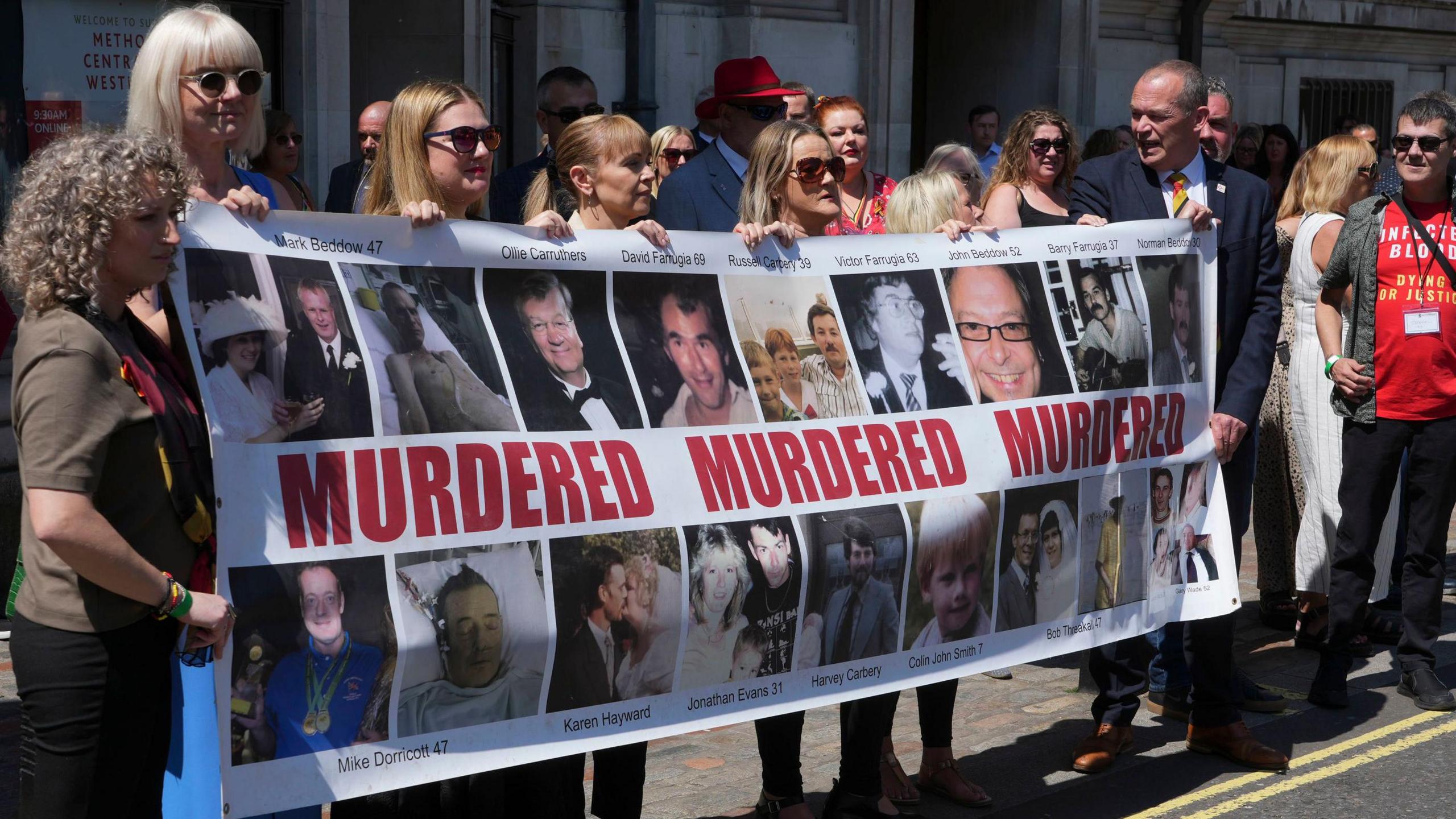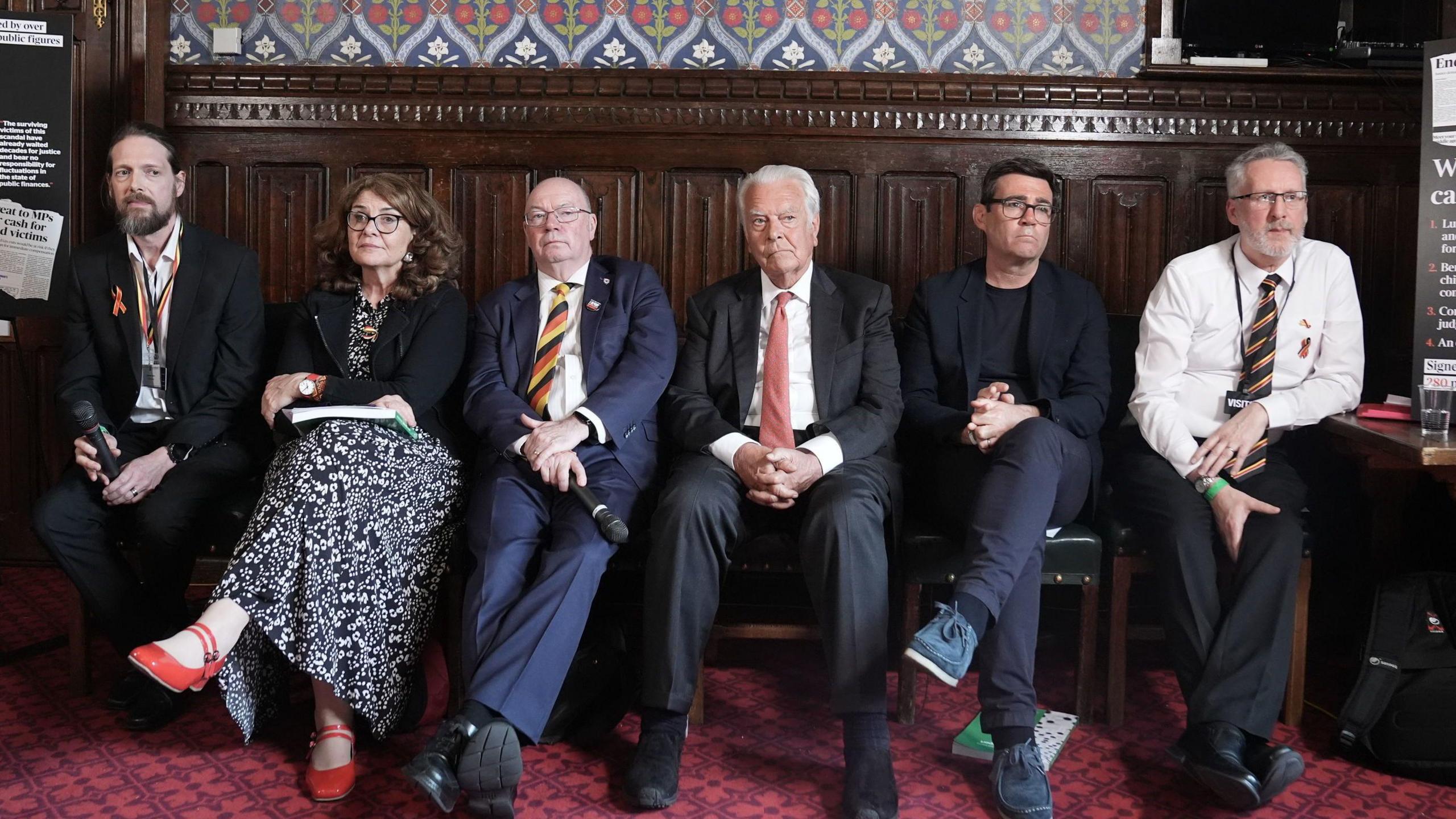Another state failure – will things ever change?

- Published
For decade after decade, from one government to the next, some Conservative, some Labour - failure.
A picture is painted of a rigid, inflexible, even inhuman state conspiring, collectively, to deny not only justice, but truth.
And it went on for generations.
The report is candid: there was a cover-up.
“Not in the sense of a handful of people plotting in an orchestrated conspiracy to mislead, but in a way that was more subtle, more pervasive and more chilling in its implications.
"To save face and to save expense, there has been a hiding of much of the truth,” it says.
So widespread was the failure, no one individual, department or institution can be held accountable.
So dispersed are those responsible, across time, politics, the civil service and medicine, each can rightly point to countless others.
Blame spread, accountability avoided.
And the net result was year after year of stasis, the initial injustice made all the worse by a collective unwillingness to acknowledge it, let alone address it.
You might seek solace in hoping this is isolated.
But I have reported from Westminster for nearly 20 years.
And this feels wearily, depressingly familiar.
I will never forget the summer of 2010.
It was mid-June and I was outside the Guildhall in Londonderry in Northern Ireland.
In that square in Derry, hundreds of faces stare up at a giant screen, showing the House of Commons.
LIVE: Follow all the latest news and updates
- Published20 May 2024
At a glance: Infected blood inquiry's key findings
- Published20 May 2024
As the then Prime Minister David Cameron apologises for the events on Bloody Sunday in 1972, a huge cheer erupts.
Mr, now Lord, Cameron said the government was “deeply sorry” after a public inquiry unequivocally blamed the British Army for one of the most controversial days in Northern Ireland's history, when 13 civil rights marchers were shot dead and 15 others were wounded.
For 38 years, so many had waited for those words.
Obfuscation, delay and denials until finally the truth emerged.
Next, there is the ongoing Post Office Inquiry.
Obfuscation, delay and denials, until finally the truth is beginning to emerge.
And then the long-running campaign for the truth and justice for the victims of the Hillsborough disaster.
Andy Burnham, who is now the mayor of Greater Manchester and is a former health secretary, finds his biography taking in two of these injustices.
I asked him why he failed to do what Theresa May was later to do – and set up an independent inquiry into the infected blood scandal.
“I always ask questions of myself - I said to campaigners, I'm sorry I couldn't do more, more quickly.
"I wasn't aware this was a cover-up when I was in the Department of Health.
"I was told at the time no-one was knowingly given unsafe products, but that was a lie. That was the official line and it was a lie.”

Former health secretary and Mayor of Manchester Andy Burnham (second from right) participated in the Sunday Times press conference at Church House in Westminster after the report was published
So you can be secretary of state, of all things, and still be misled?
“It’s incredible. Most serious questions should be asked of Whitehall departments.
"How can it be that thousands and thousands of British citizens were left in the wilderness?” he asks.
He told me it was only his involvement in the Hillsborough campaign that opened his eyes to the scope of potential institutional failure — and his own failure to ask more searching questions earlier, when he was health secretary.
The big question, then, is how do you bring about widespread, deep-seated cultural change within the organs of government and institutions connected to it?
Can you legislate to change a culture?
Sir Brian Langstaff, the report author, thinks you might be able to – or at least make a start.
He suggests there should be a so-called duty of candour demanded in law for civil servants and others.
It would then become a legal obligation to speak up, rather than a cultural expectation to shut up.
Whistleblowing would be mandatory.
But will it happen, and will it make any difference?